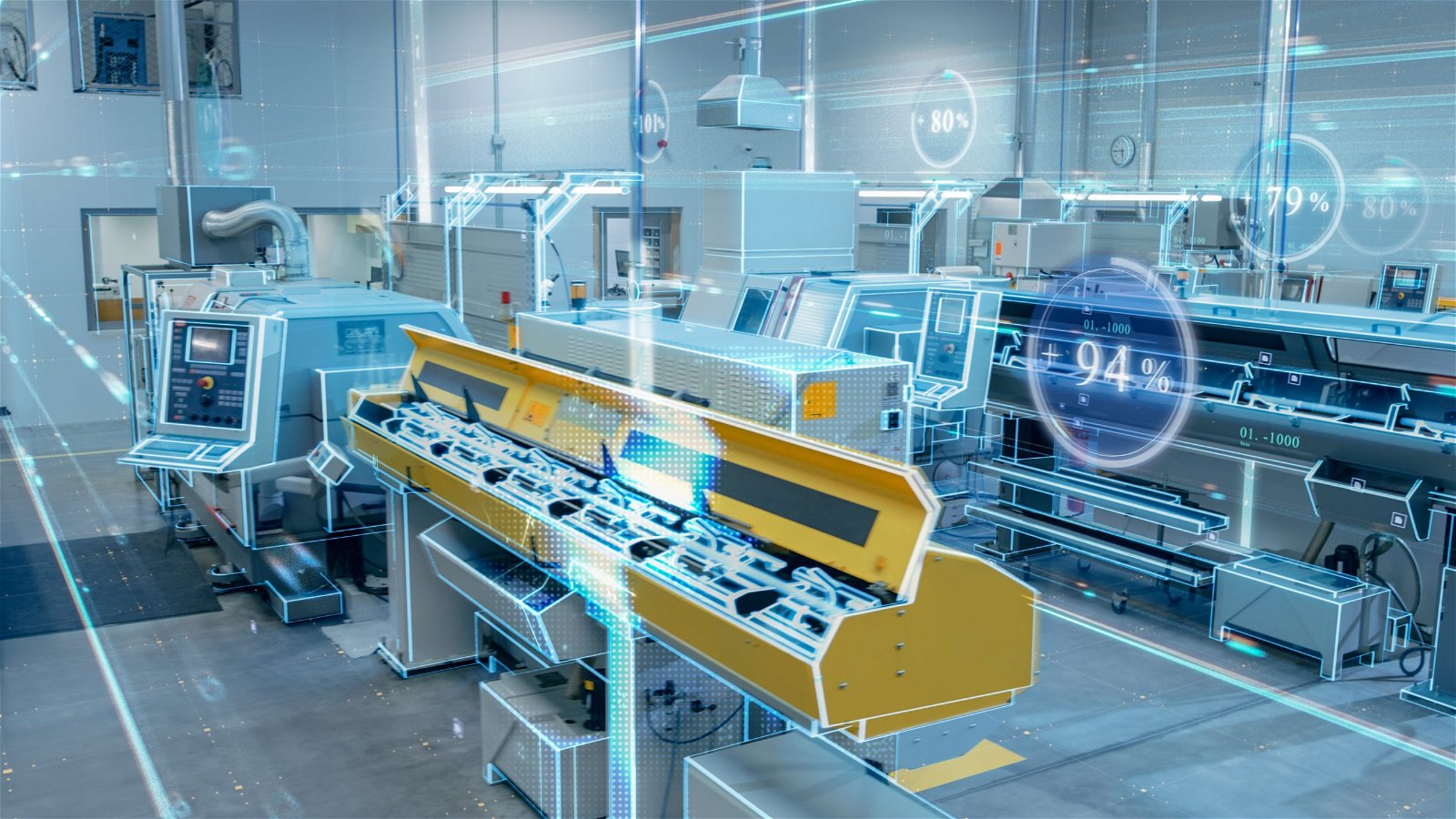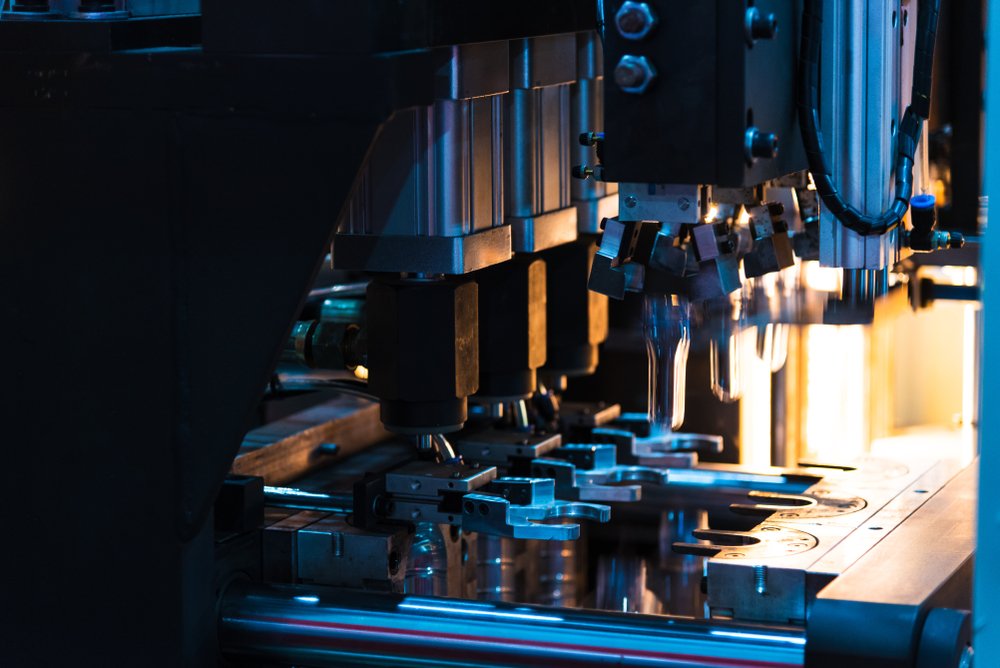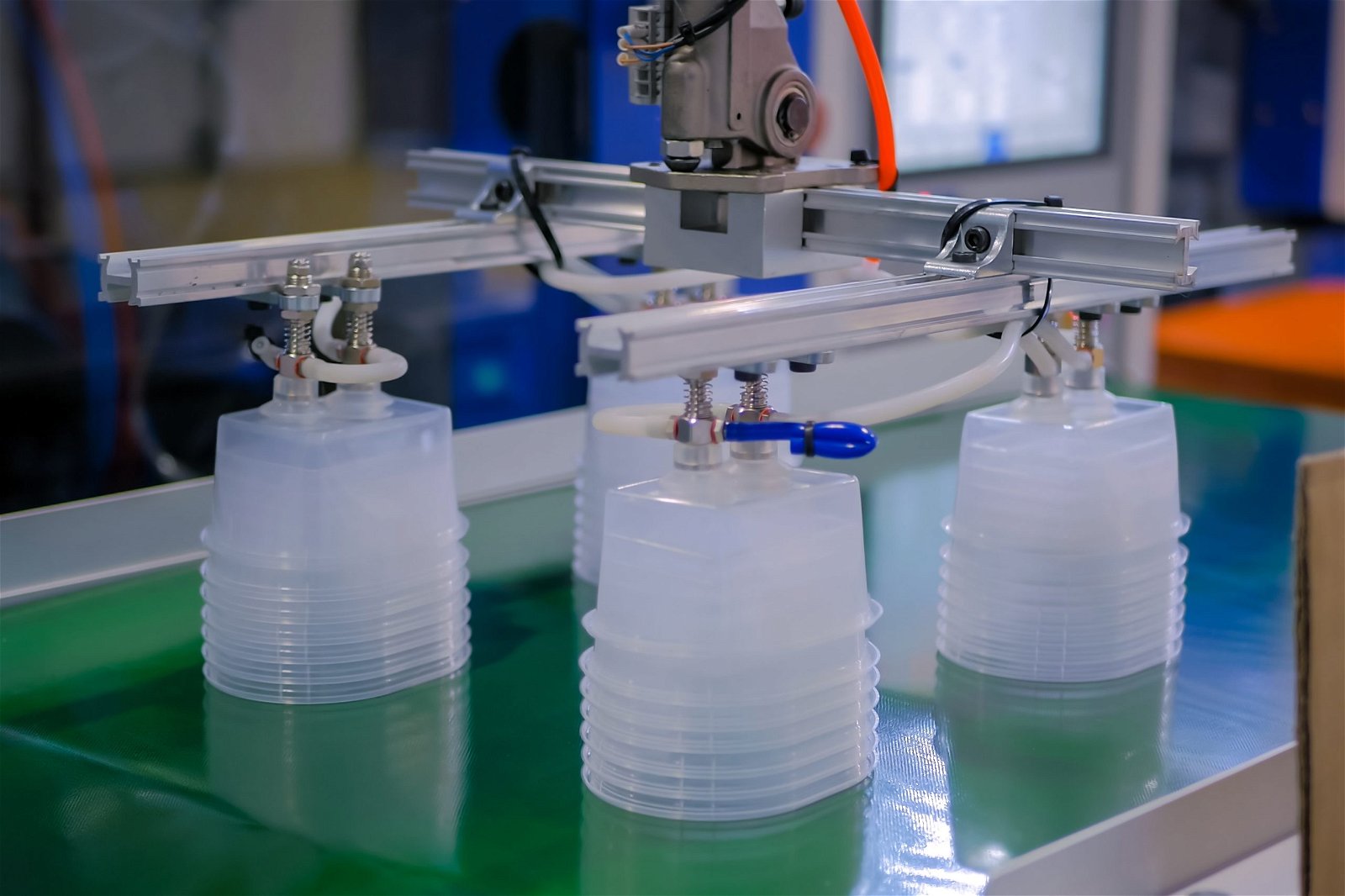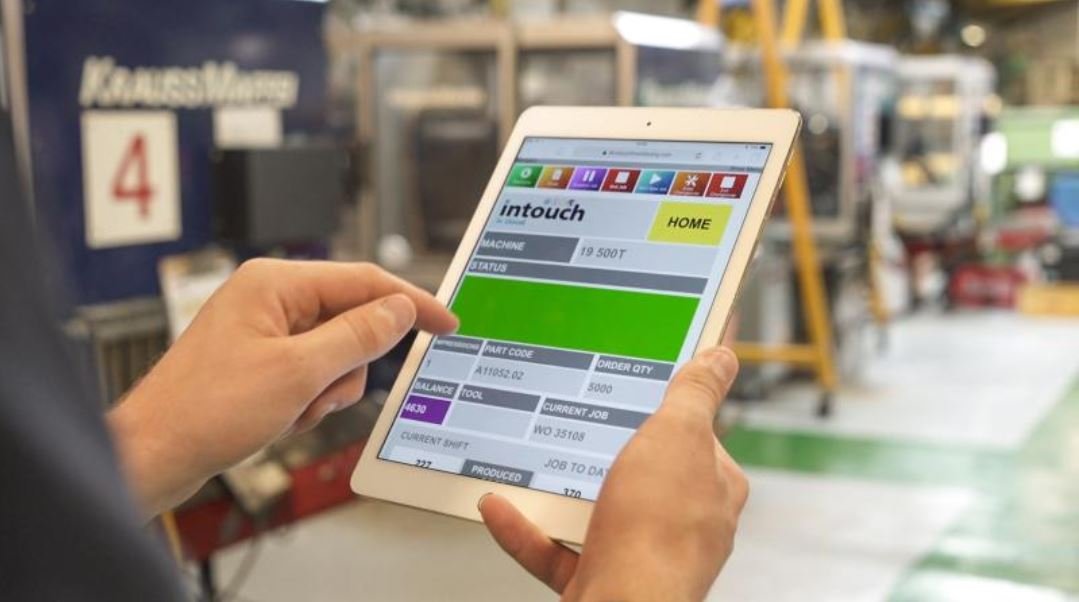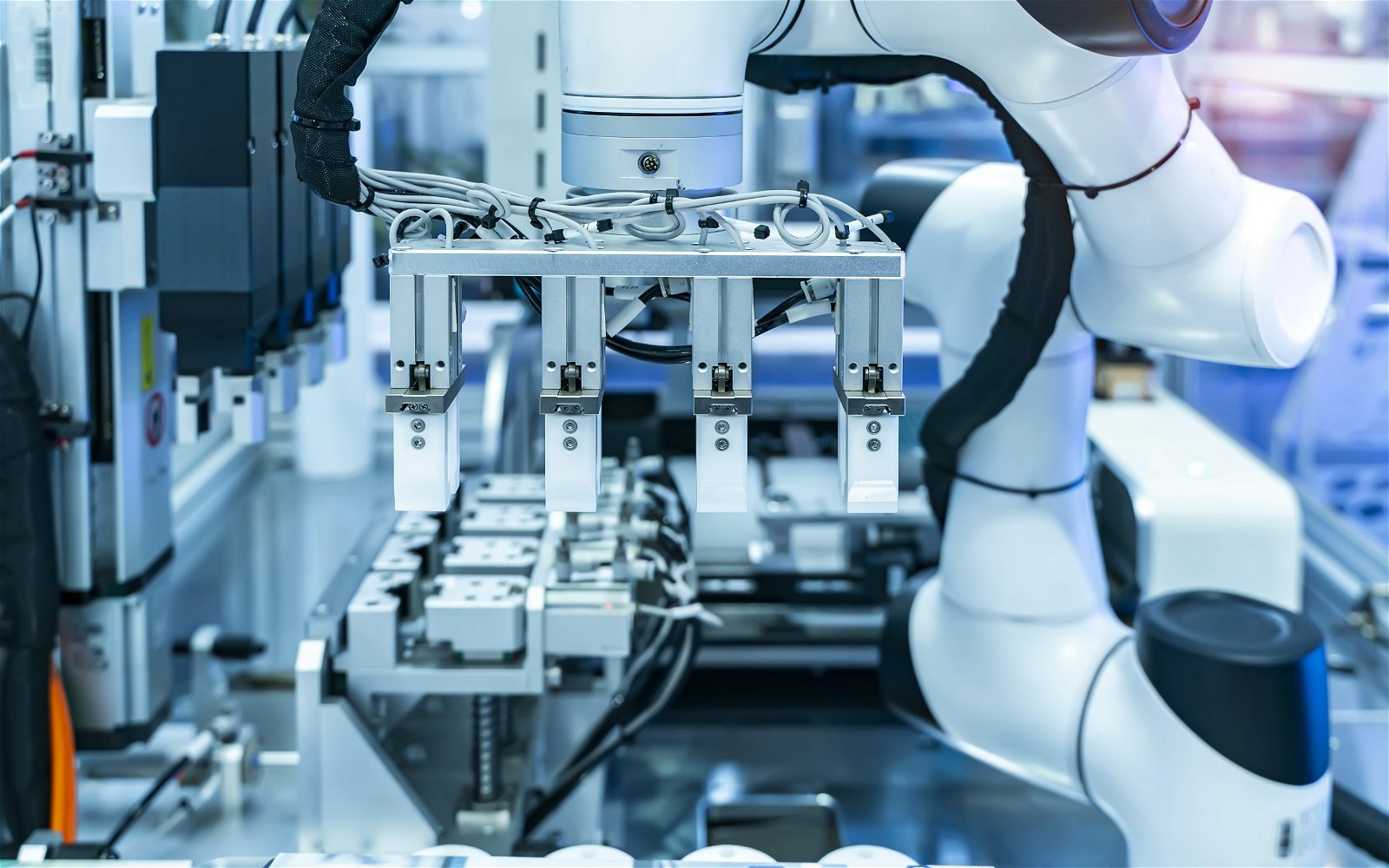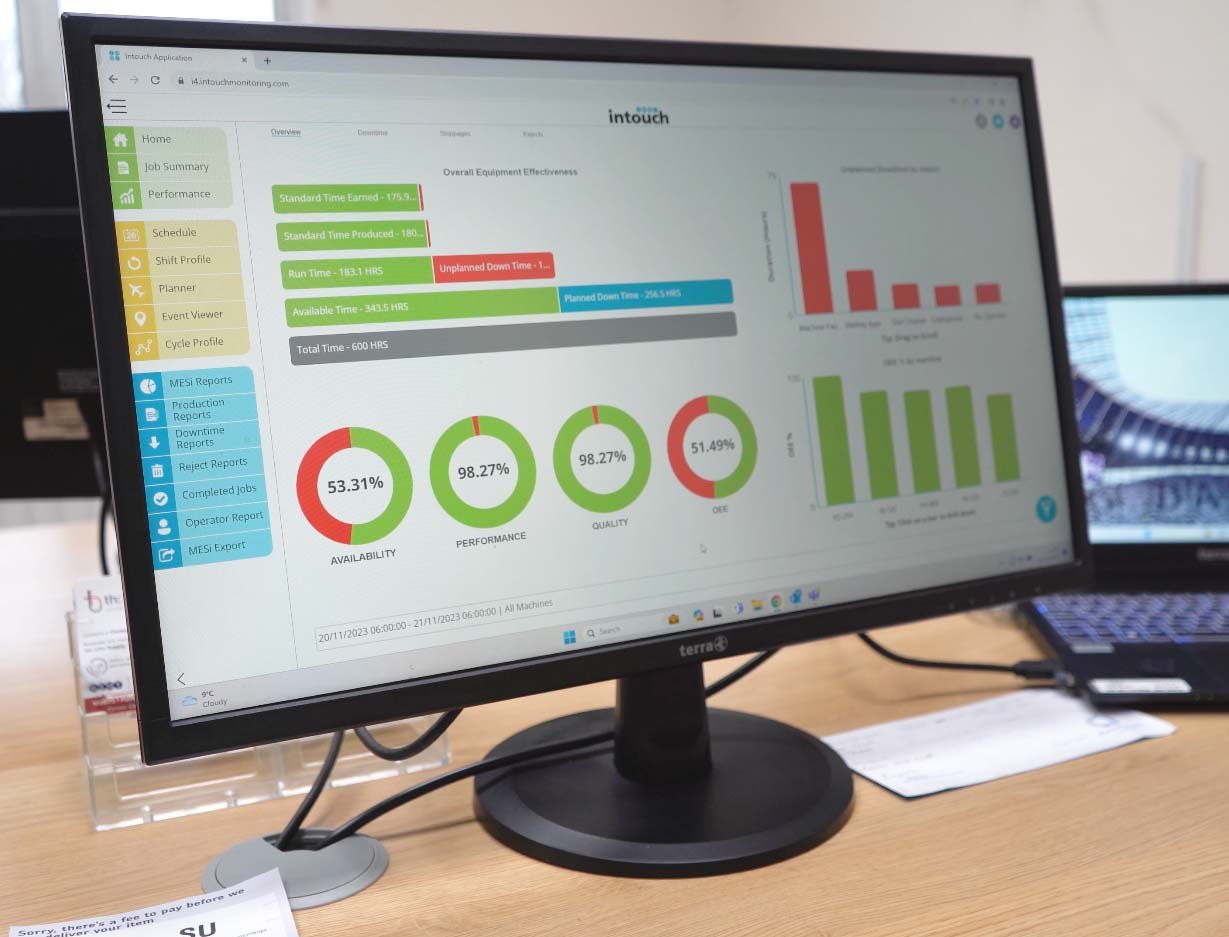MES THINKING
Industry 4.0 and Why Automation is Essential
Industrial automation involves utilising controlled or computer-controlled systems to carry out tasks typically performed by humans. This automation enhances production efficiency, reduces error susceptibility, and delivers higher quality products.
Industry 4.0, also referred to as the Fourth Industrial Revolution, marks a new phase in manufacturing characterised by the integration of automation, advanced technologies, and data to establish “smart factories”. At the core of this evolution lies automation, which plays a pivotal role in enhancing industry efficiency, precision, and adaptability.
Industrial revolution origins
The inception of the First Industrial Revolution can be traced back to the 18th century with the invention of the steam engine, which catalysed advancements in manufacturing aided by the introduction of hydraulics and pneumatics. The Second Industrial Revolution unfolded in the 19th century, marked by widespread electrification that led to the implementation of assembly lines incorporating basic control techniques.
Subsequent decades saw the emergence of more sophisticated control systems like Programmable Logic Controllers (PLCs), enhancing precision and repeatability in manufacturing processes. The Third Industrial Revolution, which began in the 1960s, was primarily driven by advancements in computing technology. This revolution evolved gradually over the next four decades. Surprisingly, many companies remain entrenched in the paradigm of Industry 3.0 and breaking free from this status quo is essential to propel operations into the 21st century.
In the era of Industry 4.0, automation transcends traditional PLC-controlled systems to embrace more advanced and integrated technologies. These include artificial intelligence (AI), robotics, the Internet of Things (IoT), machine learning, and Big Data. Discussions about Industry 5.0 are already underway, envisioning further integration of Blockchain technology, Generative AI, and achieving true harmony between humans and robots. Society has transitioned from fearing automation to embracing technology, recognizing that a fusion of human creativity and robotic productivity represents the path forward. Just think about how you use ‘Alexa’ or other voice recognition in your everyday lives.
AI and IoT play a key role in new forms of automation. Artificial intelligence, through machine learning, allows machines to “learn” from experience, adapt to new information, and perform tasks that were previously reserved for humans.
IoT, on the other hand, allows industrial devices and machines to collect and analyse data in real time, leading to increased efficiency, faster production, and waste reduction.
Benefits of Industry 4.0 and automation – improved efficiency
The main benefit of automation in Industry 4.0 is a significant increase in production efficiency. Machines can work around the clock, without the need for rest, which translates into greater output.
Moreover, thanks to the analytical capabilities offered by AI and IoT, production processes can be continuously monitored and optimized, leading to waste reduction and product quality improvement.
Despite many benefits, automation in Industry 4.0 also brings certain challenges. It requires significant investments in new technologies and retraining of employees to effectively work with and manage advanced systems. There are also issues related to data security and privacy that need to be carefully considered and managed.
Automation is becoming an increasingly important component of Industry 4.0, contributing to increased efficiency, cost reduction, and enabling greater innovation and creativity. Despite the challenges that automation brings, its role in the future of industry is undeniable.
Embrace automation – enable higher performance.
For many companies there is a level of trepidation associated with advances in automation. Given the vast number of solutions available today, coupled with lots of savvy marketing, the choices in moving forward cause enough confusion that many key stakeholders are putting off the decision-making processes. Hence, companies, especially those that don’t have deep pockets and endless resources, risk being left behind or uncompetitive.
The move to Industry 4.0 is not difficult, however. Data, communication, and security standards have become embedded in modern manufacturing and following basic guidelines allows manufacturing operations of all sizes to play on a level playing field.
Here at Intouch Monitoring we have developed an MES solution that is completely scalable and the first phase of it can be up and running within a few days. The concept is simple: start by connecting to a few critical machines on your shop floor, collect and analyse basic operational data, and make data-driven decisions that ensure production is optimised to meet changing demands. The
resulting improvements are rapid and provide a fast and easy justification to scale the installation to include additional equipment and functionality within a matter of weeks. And it doesn’t need to be price prohibitive.
The beauty of such systems is that they are quick to setup and rapidly identify process bottlenecks on production lines. As the benefits are realised, so too is the scale of deployment, resulting in connectivity to additional machines and enterprise business systems. Ultimately, the aim is to empower manufacturing organisations with an end-to-end supply chain monitoring solution that is completely agile and excels on efficiency.
We offer a free no-risk trial of our software platform, allowing companies to see tangible results before making a longer-term commitment.
Click on the link below to find out more
Would you like to learn more?
If you’d like to learn more about how you can implement production monitoring software, talk to one of our experts:
3 Signs that you are ready to digitise your factory
Are you under pressure to improve efficiencies and reduce down time, which means you’re now looking to implement smart factory technology…
Plastics Manufacturing in a volatile world
The pandemic has highlighted that the need for flexibility and adaptability in manufacturing operations is crucial for navigating…
5 ways you could improve your production efficiency right now
The importance of production efficiency cannot be overstated. It means you are making the most out of your resources – time, materials,…
Have you thought about adopting smart technology?
What's stopping you adopting smart technology in your plant? Are you worried about the costs, the expertise and training needed? What is…
The advantages of a paperless manufacturing operation
So what happens when you switch to a paperless Manufacturing Execution System? You immediately get more predictable manufacturing with more…
Why is planned downtime for maintenance so important?
Often with pressure of delivery deadlines, it is easy for planned maintenance to be pushed down the priority list and only maintain it when…
How to choose the right manufacturing execution system (MES) for you
Selecting the right MES solution will give you the data and insights necessary to optimise your OEE, give you a competitive advantage and…
What would a 1%, 5% or 30% improvement in OEE mean to you?
Are you under pressure to improve efficiencies and reduce down time, which means you’re now looking to implement smart factory technology…
How to transform your plant’s efficiency and profitability with MES
Squeezing everything from your resources without compromising on quality is a challenge increasingly faced by manufacturers. So how can…
How it works
Getting started with Intouch is as easy as 1, 2, 3
1. Book a demo
Let us show you what we can do. Jump on a demo call and our friendly team will take you through the Intouch system and answer any questions you might have.
2. Enjoy a free trial
Don’t just take our word for it! We’ll lend you our technology for a 60-day free trial so you can see exactly how it can benefit the everyday operation of your business.
3. Receive ongoing support
It doesn’t end there. If you decide Intouch is the right production monitoring system for you, we’ll work with you to help you take control and make significant improvements in OEE.

